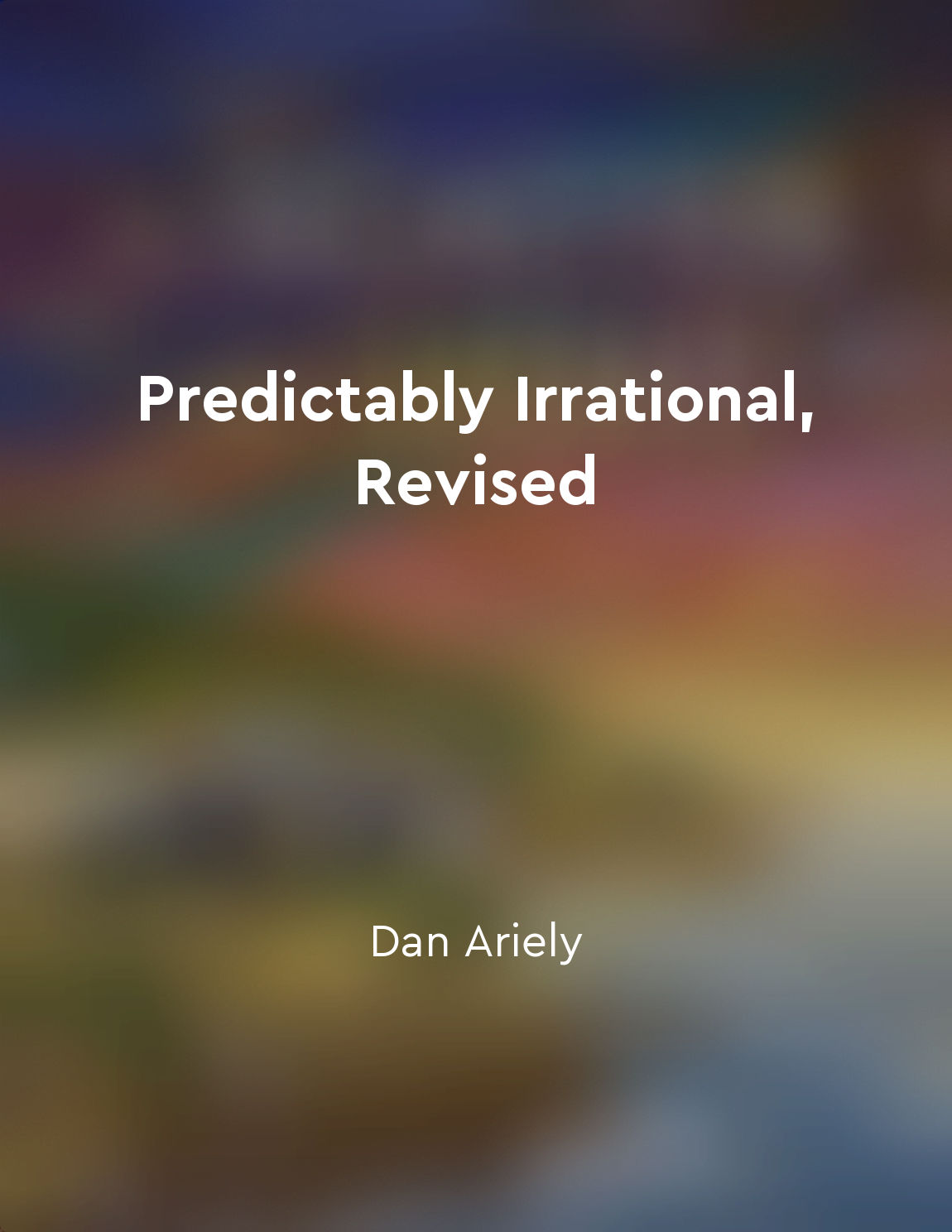Audio available in app
We rely on shortcuts in decisionmaking from "summary" of Predictably Irrational, Revised by Dan Ariely
When faced with the overwhelming amount of decisions we have to make on a daily basis, it's no wonder that we often resort to using shortcuts to simplify the process. These shortcuts, also known as heuristics, help us make quick judgments without expending too much mental energy. While this can be beneficial in certain situations, it can also lead to biases and errors in our decision-making. One common shortcut we rely on is called the availability heuristic. This heuristic is based on the idea that we tend to judge the likelihood of an event based on how easily we can recall similar instances from memory. For example, if we recently heard about a plane crash on the news, we may overestimate the likelihood of a plane crash happening to us, even though statistically, the chances are very low. This shortcut allows us to quickly assess risk, but it can also lead to irrational fears and poor decision-making. Another shortcut we often use is the anchoring heuristic. This heuristic involves relying on the first piece of information we receive when making a decision, even if it is irrelevant to the task at hand. For instance, when shopping for a new car, we may be swayed by the initial price offered by the salesperson, even if it is much higher than the actual value of the car. This anchoring effect can skew our judgments and lead us to make decisions that are not in our best interest. Other shortcuts, such as the representativeness heuristic and the affect heuristic, also play a role in our decision-making process. These heuristics involve making judgments based on how closely something resembles a prototype or how it makes us feel emotionally. While these shortcuts can save us time and effort, they can also lead to biases and errors in judgment.- It's important to be aware of the shortcuts we rely on in decision-making and to take steps to mitigate their potential negative impact. By recognizing when we are using heuristics and consciously challenging our assumptions, we can make more rational and informed choices in our daily lives.


